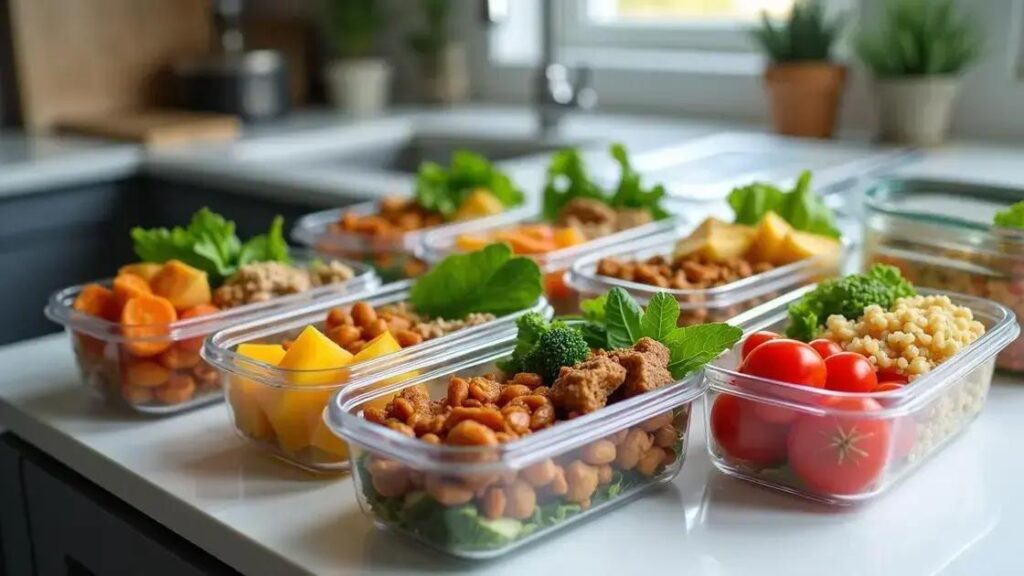Meal prepping is a time-saving and cost-effective method of preparing meals in advance, promoting healthier eating habits and reducing stress during busy weeks. By planning meals, using versatile recipes, and maintaining portion control, you can enjoy a variety of nutritious dishes throughout the week.
If you’re looking to eat healthier and save time, learning how to meal prep for a healthy week is essential. Meal prepping allows you to prepare your meals in advance, ensuring you have nutritious options ready to go. In this guide, we will cover the basics of meal prep, its benefits, simple recipes to get you started, and expert tips to make your prep sessions efficient and enjoyable.
Understanding Meal Prep Basics
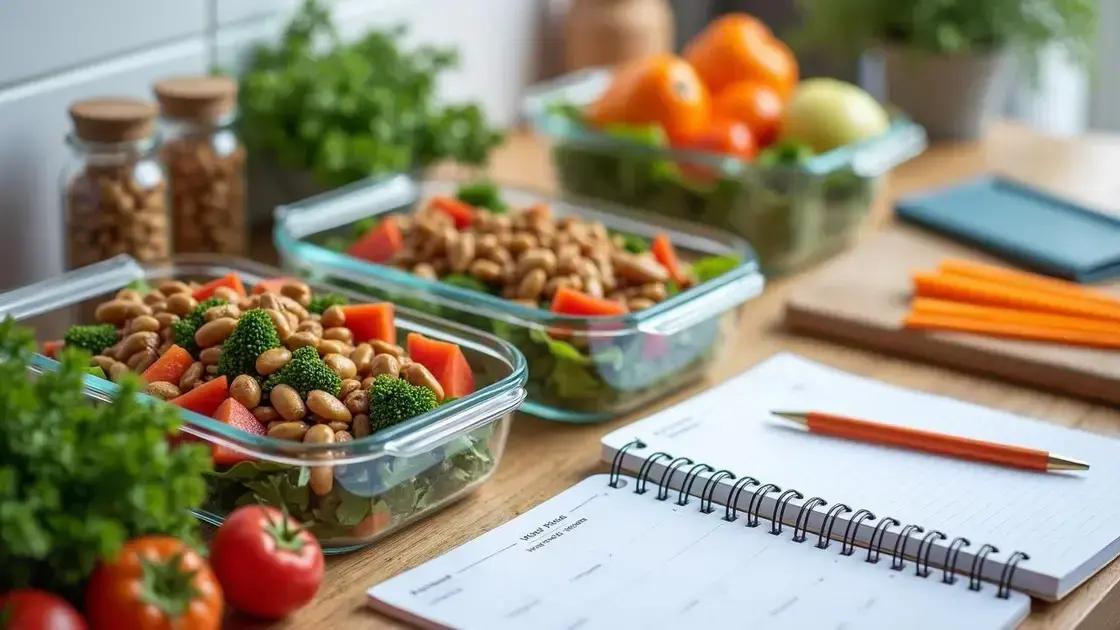
Understanding meal prep basics is crucial for anyone looking to eat healthier and save time during the week. Meal prep involves planning and preparing meals in advance to ensure you have nutritious options ready when you’re busy. There are several key concepts to grasp when starting your meal prep journey.
Planning Your Meals
Start by deciding what meals you want to prepare for the week. Create a menu that includes breakfast, lunch, dinner, and snacks. This will help you stay organized and ensure you have balanced meals throughout the week. You can use a notebook or an app to jot down your ideas.
Choosing the Right Containers
Invest in quality containers to store your meals. Glass containers are a great option, as they are durable and microwave-safe. Make sure to choose various sizes to accommodate different types of meals and snacks. Clear containers are also helpful because you can see what you have at a glance.
Batch Cooking
Cooking in batches is a key part of meal prepping. Cook larger portions of staple foods, such as grains, proteins, and vegetables, that can be used in multiple meals. For example, prepare a big batch of quinoa or brown rice, roast several chicken breasts, and steam various vegetables. Mixing and matching these items creates diverse meals without a lot of extra work.
Storage and Freshness
Proper storage is essential to keep your meals fresh throughout the week. Cool your meals completely before sealing them in containers. Label each container with the meal name and date prepared, so you remember what to eat and when. Generally, meals can last in the fridge for up to four days, while others may freeze well for longer storage.
Benefits of Meal Prepping
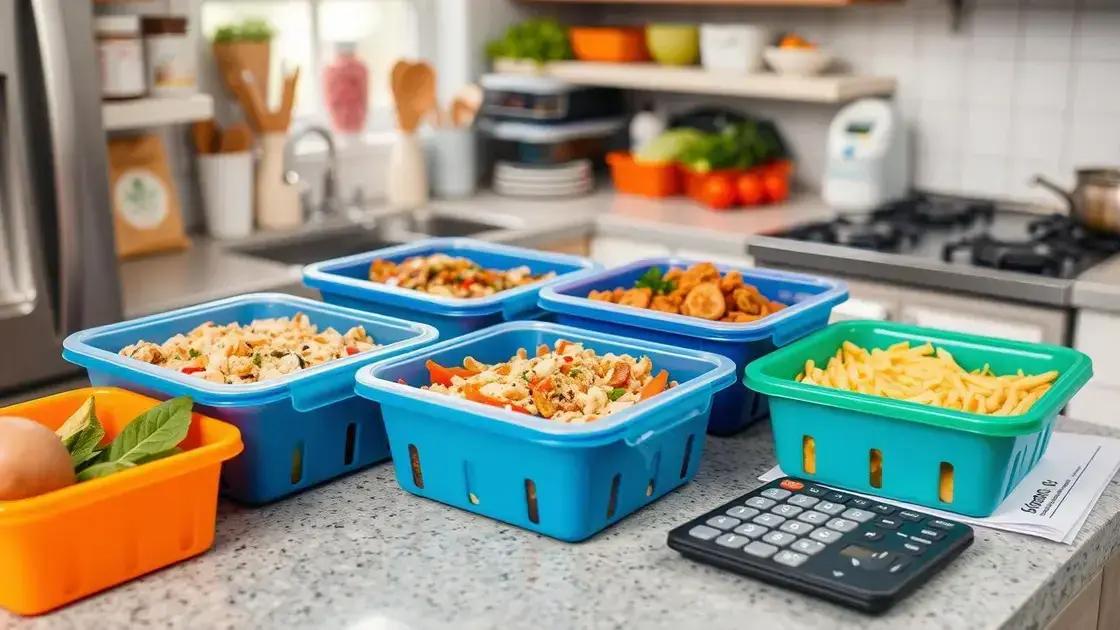
The benefits of meal prepping are numerous and can significantly improve your lifestyle. First and foremost, meal prepping saves time during busy weekdays. Instead of cooking every day, having meals ready means you can spend more time on other important activities.
Healthier Choices
When you prepare meals ahead of time, you have more control over what you eat. This leads to healthier choices and less temptation to grab fast food or unhealthy snacks. You can focus on incorporating whole foods, lean proteins, and fresh vegetables into your meals.
Cost-Effective
Meal prepping can also save you money. By buying ingredients in bulk and planning your meals, you reduce food waste and avoid impulse buys at the store. Preparing meals at home is usually less expensive than eating out, especially when you’re able to use leftovers creatively.
Portion Control
Another significant advantage of meal prepping is portion control. When you divide your meals into containers, you can measure exact servings, which helps prevent overeating. This is particularly beneficial for those trying to manage their weight or follow specific dietary guidelines.
Reduced Stress
Having prepped meals ready to go can reduce stress in your daily routine. Knowing that your meals are already planned and prepared can make your week feel more manageable. This contributes to a more relaxed and enjoyable lifestyle, as you eliminate the last-minute rush to decide what to eat.
Healthy Meal Prep Recipes
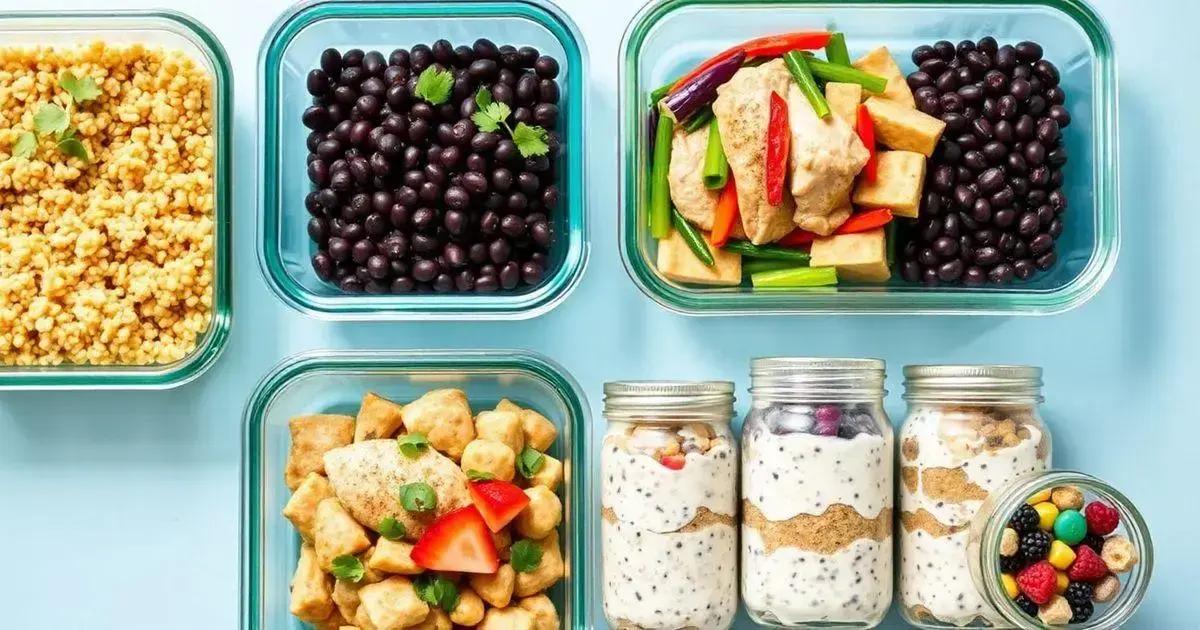
Healthy meal prep recipes can make your week smoother and your meals tastier. Here are three delicious recipes that are easy to prepare in advance and packed with nutrients.
Quinoa and Black Bean Bowl
This protein-rich dish is perfect for lunch or dinner. Cook 1 cup of quinoa according to package instructions. In a separate pan, heat 1 can of drained black beans with 1 teaspoon of cumin and salt to taste. Mix the quinoa and black beans in a large bowl, and add chopped bell peppers, corn, and avocado. Divide into meal prep containers, and squeeze lime juice over each serving before sealing.
Chicken and Veggie Stir-Fry
For a quick and healthy dinner, try this stir-fry. Sauté 1 pound of diced chicken breast in a tablespoon of olive oil until cooked. Add a mix of your favorite vegetables, like broccoli, carrots, and snap peas. Drizzle with low-sodium soy sauce and cook until veggies are tender. Divide this meal into containers with a serving of brown rice or cauliflower rice for a well-rounded option.
Overnight Oats
Breakfast can be simple and nutritious. For overnight oats, combine 1/2 cup of rolled oats, 1/2 cup of almond milk, and a tablespoon of chia seeds in a jar. Add your choice of toppings, such as sliced bananas, berries, or nuts. Seal the jar and refrigerate overnight. They’ll be ready to grab in the morning!
Tips for Successful Meal Prep
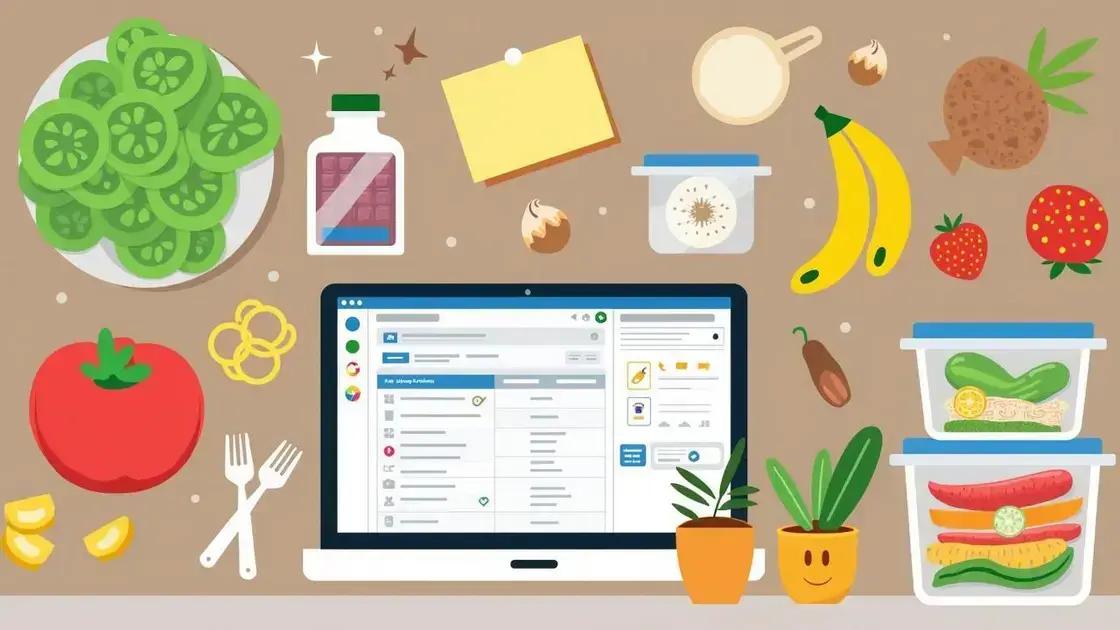
Tips for successful meal prep can make a big difference in how easy and enjoyable your weekly cooking becomes. Here are some practical strategies to help you get started.
Set a Prep Schedule
Choose a specific day each week to do your meal prepping. Sundays are popular, but pick a day that works best for you. Sticking to a consistent schedule will help make meal prep a habit.
Start Small
If you are new to meal prepping, start with just a few meals. As you become more comfortable, you can gradually increase the number of meals you prepare at once. This approach helps prevent feeling overwhelmed.
Use a Variety of Recipes
Incorporate different recipes to keep your meals exciting. Look for recipes that feature seasonal ingredients or swap out proteins in your favorite dishes. This will prevent boredom and motivate you to stick with meal prepping.
Keep It Simple
Focus on recipes that are quick and easy to prepare. Dishes that require minimal ingredients and preparation time are ideal. This way, you can spend less time cooking and more time enjoying your meals throughout the week.
Make a Grocery List
Before you shop, create a list based on your meal plan. A grocery list ensures you buy only what you need, making shopping efficient and reducing food waste. Stick to your list and avoid impulse buys to stay on budget.
The Importance of Meal Prep for a Healthy Lifestyle
Learning how to meal prep effectively can transform your week and promote healthier eating habits. By understanding meal prep basics and realizing the benefits, you can create a routine that fits your lifestyle.
With delicious, healthy meal prep recipes at your disposal, you’ll have variety and nutrition ready when you need it most. The tips shared can help you make meal prepping a consistent and enjoyable part of your life.
Incorporating meal prep into your weekly routine not only saves time and money but also enhances your overall well-being. Embrace meal prepping to pave the way for a healthier week!
FAQ – Frequently Asked Questions about Meal Prepping
What is meal prepping?
Meal prepping is the practice of preparing meals ahead of time, making it easier to eat healthy during busy weeks.
What are the benefits of meal prepping?
Meal prepping saves time, reduces stress, helps control portions, promotes healthier eating choices, and can be cost-effective.
How do I start meal prepping?
Begin by planning your meals for the week, choosing recipes, and dedicating a specific day to do your prep work.
What type of containers should I use for meal prep?
It’s best to use glass or BPA-free plastic containers for meal prepping, as they are durable, easy to clean, and safe for microwaving.
Can I freeze my meal preps?
Yes, many meal prep dishes freeze well. Ensure you use airtight containers to maintain freshness when freezing.
How can I keep my meal prep interesting?
Use a variety of recipes and ingredients, and mix and match different proteins, grains, and vegetables each week to avoid boredom.

